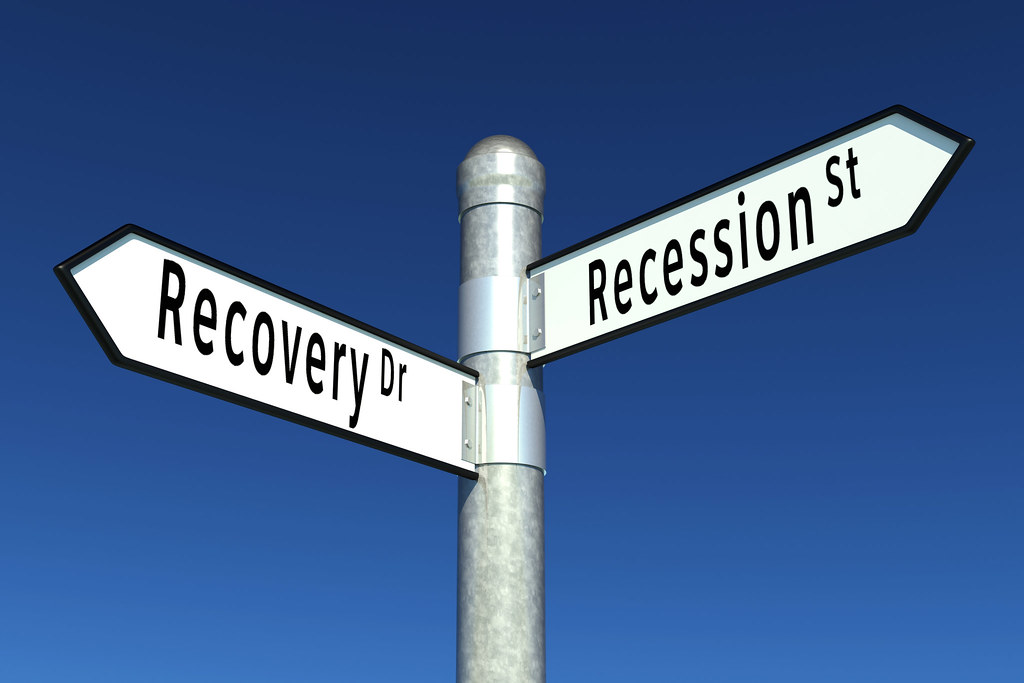
Preparing for possible coronavirus recession — 5 ways to reduce your debt
The coronavirus pandemic has wreaked economic havoc in recent weeks, causing unprecedented levels of unemployment, extreme stock market volatility and falling consumer confidence and spending across the board. It even spurred major financial players like Jamie Dimon, CEO of JPMorgan Chase, to predict a “bad recession” on the horizon.
If he’s right and the economic downturn continues, Americans will need to act fast to recession-proof their finances — especially if there’s debt on the table.
Recession-proofing your debts
Credit cards, mortgages, and student loans can all complicate things when times get tough, and it’s important to take steps to get ahead if you want to keep your head above water when things get hard.
As Mike Desepoli, vice president at Heritage Financial Advisory Group, put it, “Navigating a recession can be difficult enough, but it’s increasingly more difficult when you’re saddled with debt. A job loss during a recession could set off a spiral of financial issues from missed mortgage payments, student loans and credit cards. In difficult times, it is important to control what you can and prepare yourself in advance.”
Here’s what experts say to do before it’s too late:
Reduce your higher-interest balances
Focus on paying down your high-interest debts — usually your credit cards and any personal loans you may have. These debts not only cost you the most in the long run, but paying them down first creates some financial cushion, making it easier to pay off other debts or just get by when purse strings are tight.
“Start by focusing on your highest-interest balances,” Desepoli said. “These are the debts that are most damaging to your finances because they compound so quickly. This may cause you to redirect some of your monthly payments from lower-interest vehicles towards the higher ones. Your out-of-pocket will remain the same, but you will be having a more profound impact.”
Consider a balance transfer
Transferring your credit card balances to a new, zero-interest card can be a good option. This allows you to consolidate your other balances and pay no interest for a set period of time — usually at least six months or more.
While these promotional offers are generally widely available, according to Ted Rossman, industry analyst for CreditCards.com, they may be hard to come by in today’s economic climate.
“You probably need a steady job and a credit score of 700-plus in order to qualify for the best balance transfer credit cards these days,” Rossman said. “If this describes you and you have credit card debt, I’d recommend signing up for one of these cards as soon as possible. You can save hundreds or thousands of dollars in interest, depending on how much you owe. And you can get a long runway — up to 21 months — with no interest being charged.”
Refinance student loans and mortgages
If you’ve got student loans, a mortgage, or a personal loan to your name, refinancing might be an option. The goal here would be to lower your interest rate, thus lowering your monthly payment as well as the long-term costs of your loan. You can then use those savings to pay down your debts faster or help offset any financial strain you’re dealing with.
A word of caution here: If this is a route you’re considering, you’ll need to act fast — especially if you expect your income or job may be effected in the impending recession. These changes could impact your ability to refinance (or the rates you’d qualify for when doing so).
If refinancing isn’t possible, a debt consolidation loan could be another option — as long as it would lower the total interest you’re paying, thus freeing up more cash.
Ask for help
Many financial institutions and credit card companies have options for consumers who are dealing with financial hardship. These can include loan modifications, repayment plans, deferment, forbearance and more. The recently passed Coronavirus Aid, Relief, and Economic Security (CARES) Act also offers a number of options if you’re unable to pay your rent, mortgage or student loan bills.
If high credit card balances are your biggest worry heading into a recession, Rossman recommended contacting your card issuer as soon as possible.
“Most banks are offering hardship programs that allow cardholders to skip payments — sometimes even without interest,” Rossman said. “Sometimes they will lower your interest rate upon request, waive other fees, and even raise your credit limit in some cases. As long as you have permission to pay late or to pay less for a time, this won’t hurt your credit score. Help is available, but you need to ask for it.”
Have a financial safety net
You should also figure out ways you can start cutting back expenses (could you reduce 401(k) contributions, for example), and start funneling those savings into an emergency fund.
In most situations, experts recommend having at least six months of household expenses saved up, but given the current economic uncertainty, it might be best to go beyond that — potentially up to a year of expenses — just to be safe.
Source: Fox Business

